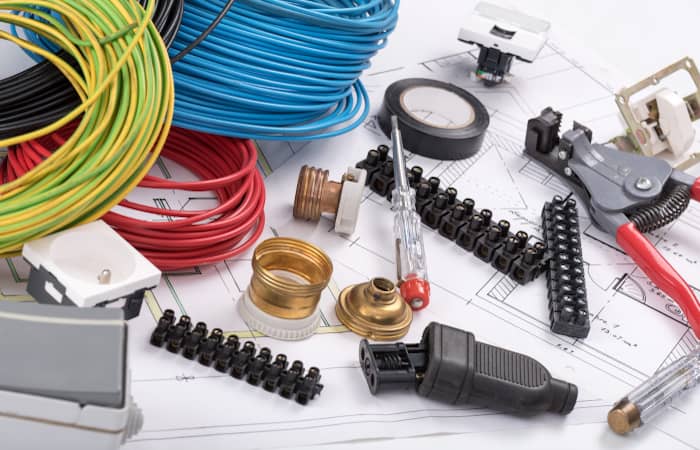PRESIDENT
Per.Ind. ANTONELLO GRECO
SECRETARY
Ing. MATTEO GAVAZZENI
TECHNICAL OFFICER
Ing. SALVATORE PUGLIESE
Scope of application
Il Comitato Tecnico 64 ha lo scopo di preparare norme riguardanti criteri di sicurezza per la progettazione, l’installazione, la verifica e la manutenzione degli impianti elettrici di bassa tensione (fino a 1000 V in corrente alternata e a 1500 V in corrente continua).
I criteri di sicurezza sono destinati in particolare alla protezione contro i contatti elettrici che possono sorgere per guasti delle apparecchiature elettriche e degli impianti, alla scelta e corretta installazione dei componenti elettrici in base alle condizioni ambientali e ai luoghi a cui essi sono destinati e alle modalità per l’esecuzione delle verifiche iniziali e periodiche.
Segue lo sviluppo delle Norme IEC 60364 e CLC HD 60364 con lo scopo principale di aggiornare la Norma CEI 64-8 "Impianti elettrici di bassa tensione". Inoltre, il CT predispone guide di applicazione alla Norma CEI 64-8 per gli operatori nazionali del settore.
Structure
La struttura organizzativa del CT 64 si articola in 3 Gruppi di Lavoro e un gruppo di Coordinamento:
- Gruppo Consultivo, composto da un rappresentante delle categorie dei progettisti, installatori, costruttori, verificatori, addetti alla sicurezza sul lavoro, enti di certificazione, ecc.
- Gruppo di Lavoro 1 "Protezione contro i contatti diretti, indiretti, sovratensioni, verifiche"
- Gruppo di Lavoro 2 "Protezione contro le sovratensioni, scelta dei componenti elettrici, alimentazione dei circuiti di sicurezza"
- Gruppo di Lavoro 3 "Ambienti ed applicazioni particolari" (tra i quali, ad es., Locali con bagno e doccia, Piscine e fontane, Saune, Cantieri edili, Locali agricoli, Campeggi, Darsene, Locali medici, Stand e Manifestazioni fieristiche, Impianti fotovoltaici, Impianti di illuminazione, Impianti elettrici a bordo di veicoli, Locali di ricarica per veicoli elettrici, Passaggi per manutenzione, Ambienti a maggior rischio in caso di incendio, Locali di pubblico spettacolo, Impianti per riscaldamento a pavimento e a soffitto).
Il CT 64 coordina l’attività dei due SottoComitati:
Work Program
Il programma di lavoro a livello nazionale CEI, suddiviso per settori, è disponibile al link: Programma di normazione nazionale
Il programma di lavoro a livello europeo CENELEC è disponibile al link: CLC/TC 64 Work programme
Il programma di lavoro a livello internazionale IEC è disponibile al link: IEC/TC 64 Work programme
Latest Publications


CEI TS 64-64;EC
CEI Classification: 64-64;EC

CEI 0-17
CEI Classification: 0-17



CEI 64-61
CEI Classification: 64-61

CEI 0-2;CSV
CEI Classification: 0-2;CSV
INTERNATIONAL Related Committees - IEC
Links
TC 064: IECNATIONAL Related Committees - CEI
This Committee contributes, with the creation of standards, to the following themes
ICS
International Classification for Standards (ICS) is an international classification system for technical standards.
The ICS is a hierarchical classification organized on three levels.
Level 1 covers the main fields of activity in standardization, e.g. road vehicle engineering, agriculture, metallurgy.
Each field has a two-digit notation, e.g.
43 Road Vehicle Engineering
The main fields are subdivided into groups (level 2). The notation of a group consists of the field notation and a three-digit group number, separated by a point, e.g.
43.040 Road vehicle systems
Some groups are further divided into sub-groups (level 3). The notation of a sub-group consists of the group notation and a two-digit number, separated by a point, e.g.
43.040.20 Lighting, signaling and warning devices
You can identify the ICS code of your interest by typing the code or a keywordword in the dropdown ICS field, and by selecting one of the filtered results.
Search also in the summary/description of the standard
By flagging this control, the search for keywords will not be limited to the Standard Number and Title fields, but will also be performed in the Abstract of the standard.
This way, you will get more results.
You should use this option when you can not find the desired result with the standard approach and it is necessary to extend the scope of the search: by increasing the number of results, you will increase the number of non-relevant elements, as well.




